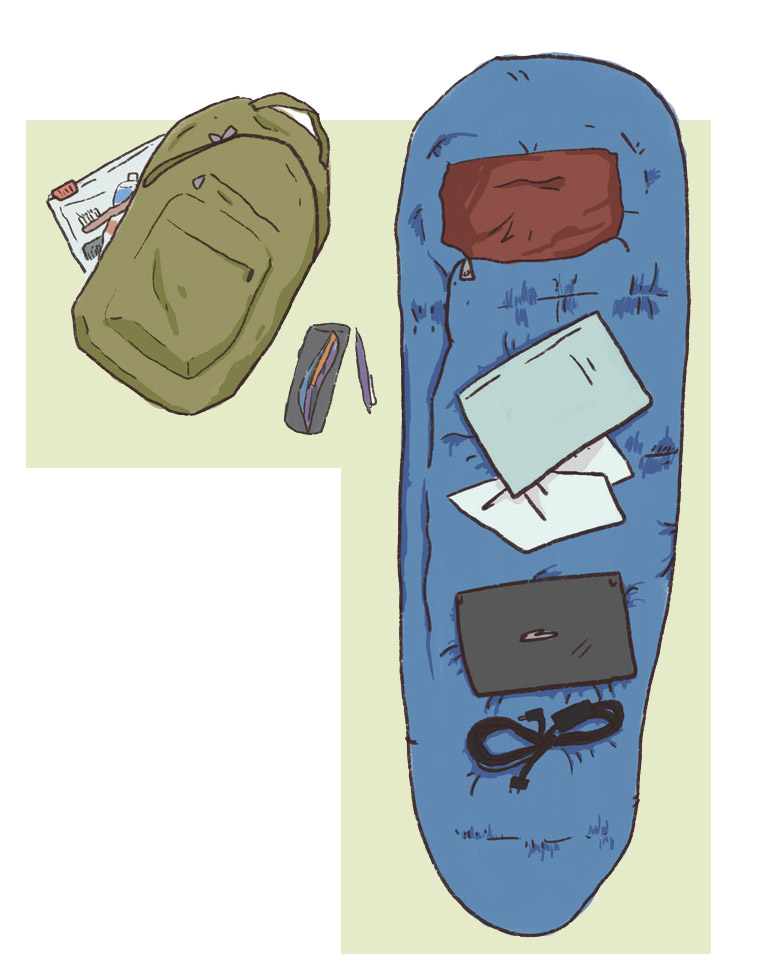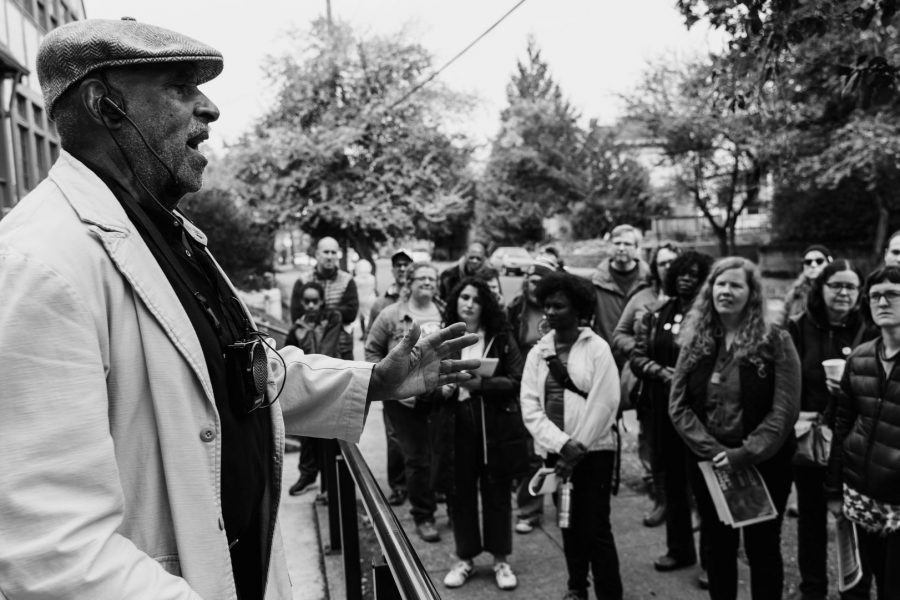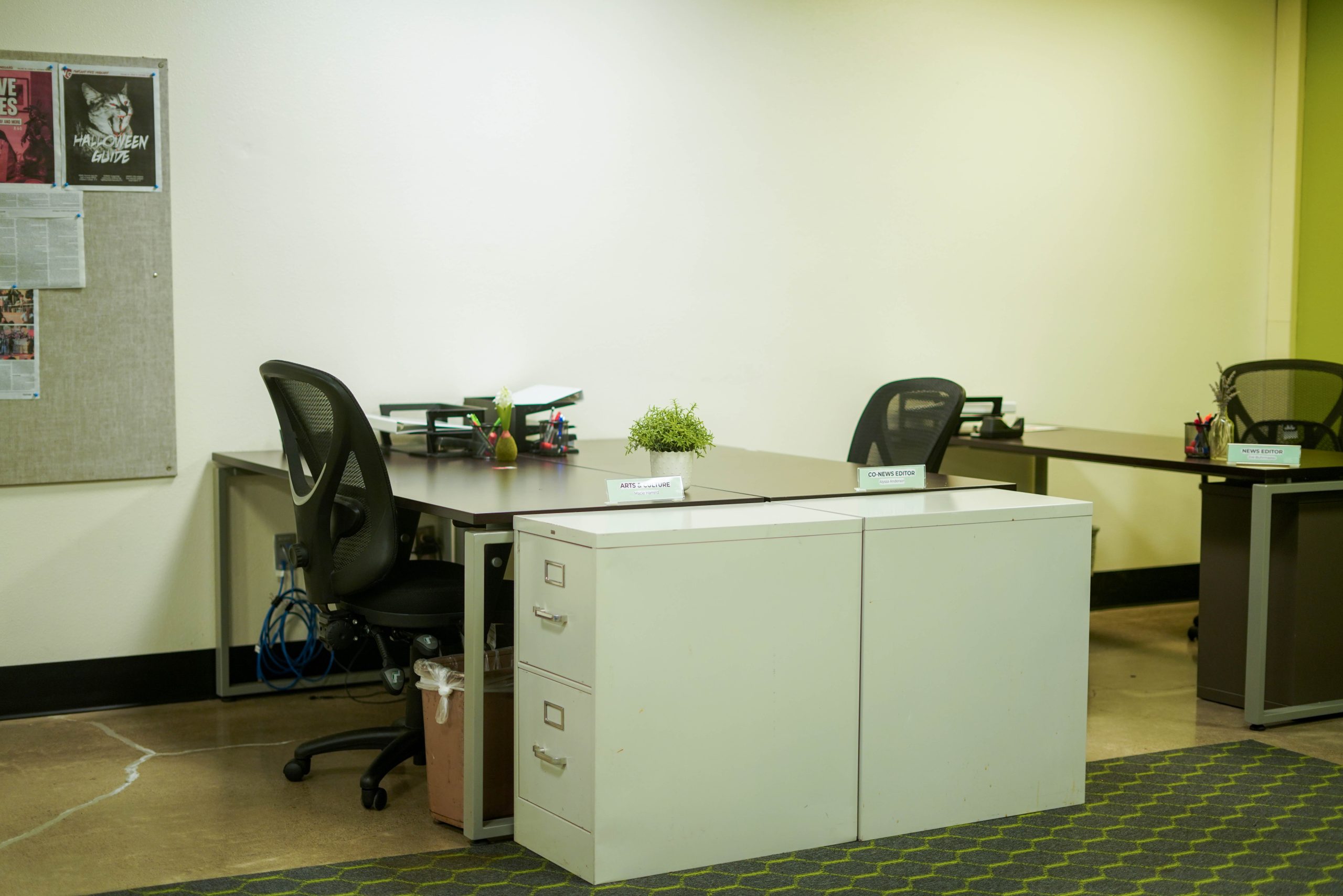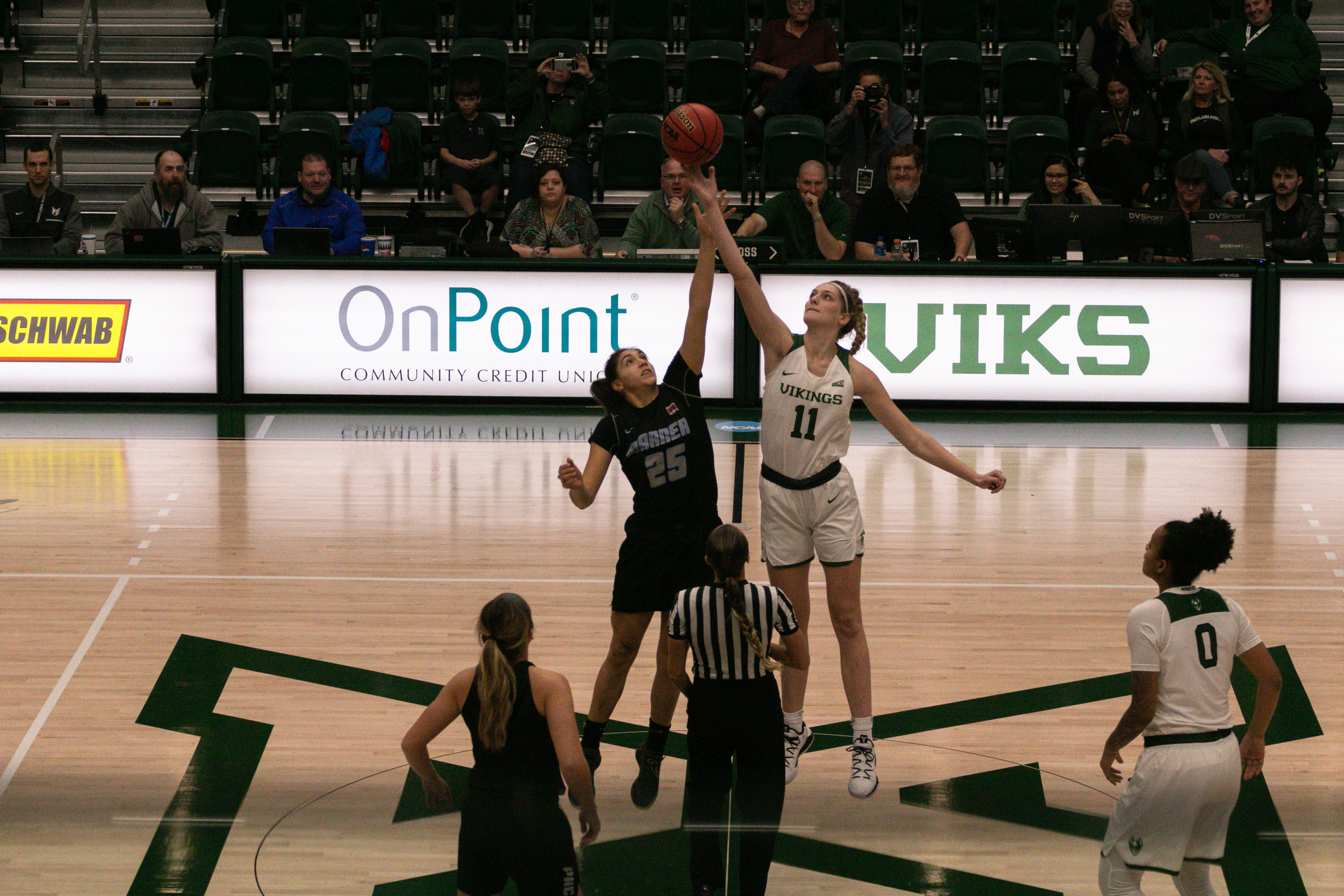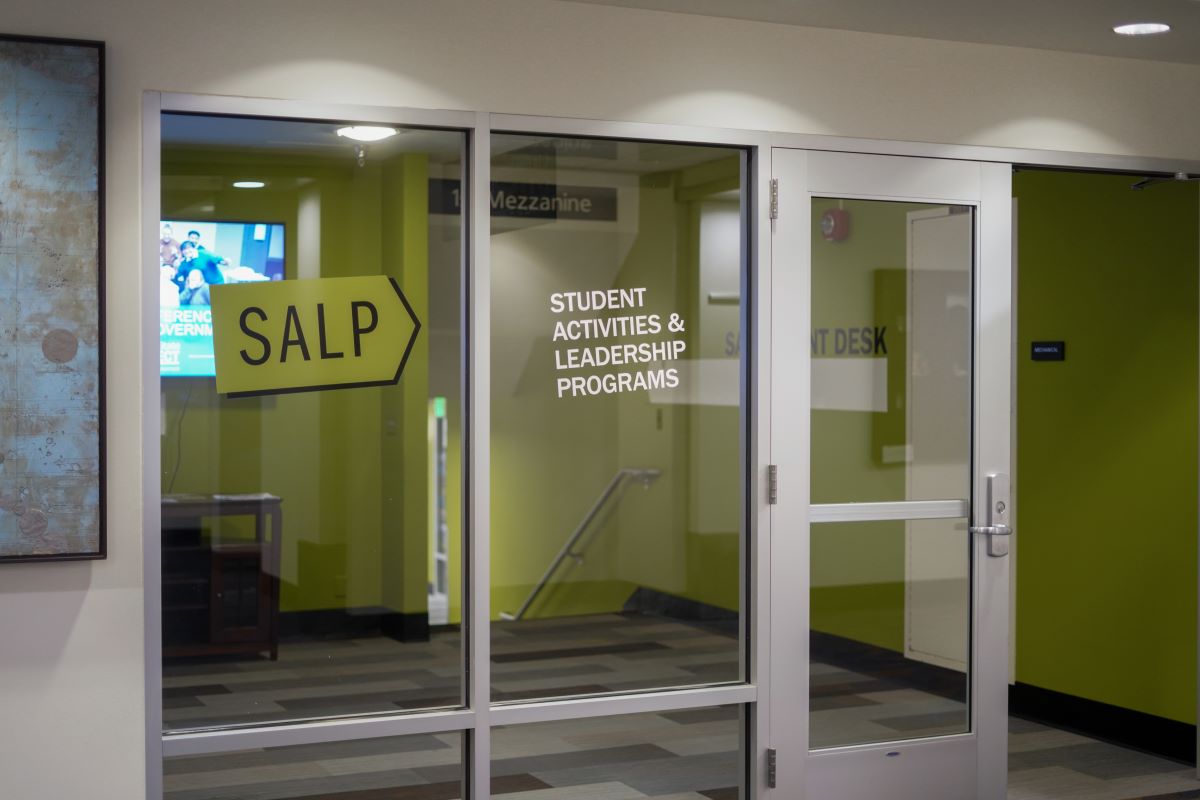The Portland State Homelessness Research and Action Collaborative—a group of faculty and students dedicated to researching houselessness in Portland—showcased five student- and faculty-led research projects at an event held on Oct. 10 at the Native American Student and Community Center.
The speakers discussed a multitude of ways to aid those experiencing houselessness at PSU and in the city of Portland. The research presented a multi-faceted approach showcasing five main areas: reducing houselessness at PSU, changing the language narrative surrounding houselessness, innovative approaches to support people experiencing houselessness, housing as healthcare and policy and program evaluation.
According to Professor Greg Townley, director of research for the HRAC, he and Dr. Marisa Zapata, the director of the HRAC, enlisted the help of 11 graduate students from multiple disciplinary backgrounds and one consultant to help train the next generation of students in researching houselessness.
“Any good project is always going to have a defined audience, and you may have a disaggregated data set, but all of the studies we did this summer were focused on very specific groups,” Zapata said at the event.
One initiative undertaken by the HRAC is aimed at helping craft the Portland Street Response, a program which explores different options for responding to low-priority calls—such as houselessness—in lieu of a police response.
With the help of partners such as Street Roots, Right 2 Survive and Portland City Commissioner Jo Ann Hardesty’s staff, researchers interviewed people experiencing houselessness throughout the city in order to connect those in need with the proper resources.
Some of the HRAC’s researchers, such as HRAC members Kaitlin Dey’s investigative research into Business Improvement Districts and Wendy Nuttelmans’s work on changing the language narrative surrounding houselessness, are still gathering information on how to best aid those experiencing houselessness. Other projects have already made their way into the campus population.
One such project is a survey emailed on Oct. 8 to PSU students and faculty. Developed over the summer, the survey aims to determine the breadth of students and faculty alike experiencing either food insecurity or houselessness.
“We must understand how hunger and homelessness impact our campus community,” Interim President Stephen Percy stated in the email. “This survey will help us understand our most vulnerable students and employees and shape university support in the future.”
A Temple University study estimates that 10–14% of college students are currently experiencing homelessness. The PSU survey intends to encompass students and faculty alike in an effort to not only identify the amount of people experiencing these issues but also provide ways to move forward in providing suitable assistance.
“We know students and employees are struggling to meet basic needs because we see it everyday in our classes and on our campus,” Townley said.
Another key component of the HRAC’s work is changing the popular narrative about those experiencing houselessness. In a project to change this narrative, led by Nuttelman, researchers utilized a computer program called Corpus Linguistics to sift through large amounts of online data. Using a keyword search, this project sought to find out what the community associates with words like “transient.” Overwhelmingly, the information pointed toward words and phrases such as “homeless camp,” “drug use,” “illegal” and “human waste.”
Nuttelman stressed at the event that a fundamental part to addressing houselessness is how we look at it and the terms we attribute to it. To ensure positive results from these efforts to provide assistance, houselessness must first be looked at in a way that focuses on the people experiencing it and not generalizations.
In addition to highlighting the efforts of students and the HRAC staff, Luke Robinowitz, who is currently working on attaining his masters degree at PSU, recounted his own experience with houselessness in a short film put together by PSU students Lauren Everett and Stefanie Knowlton.
When asked about the efforts of these researchers, Robinowitz commented, “It’s a nice contrast to how you feel when you’re out there, when you feel like nobody cares at all or people are actively working against you. It’s a kind of catharsis in a way.”
Robinowitz went on to provide this advice for those in the community experiencing homelessness or food insecurity. “Street Roots is a very good resource. I don’t want to make generalizing statements, but it does get better if you reach out for support.”
This event was held as a part of Portland State of Mind, a 10-day festival which includes multiple events across PSU.

